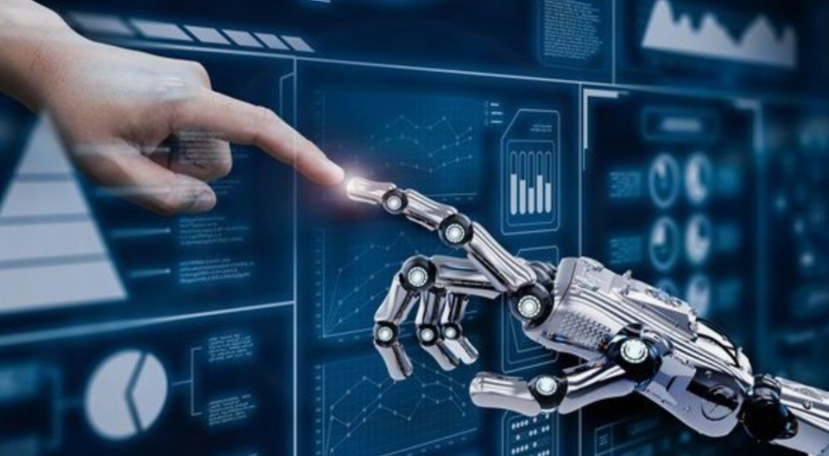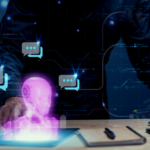Artificial Intelligence (AI) has made significant strides over the past decade, transforming industries and reshaping the way we work. Among the most notable developments is the rise of AI-powered assistants. From virtual assistants like Siri and Alexa to more sophisticated systems used in business, these intelligent tools are now central to enhancing productivity, automating tasks, and streamlining operations. As AI technology continues to evolve, its impact on productivity is only set to grow, unlocking new efficiencies across various sectors.
In this article, we’ll explore the future of AI assistants and how they are revolutionizing productivity in both personal and professional spheres.
The Growing Role of AI Assistants
AI assistants are powered by machine learning algorithms, natural language processing (NLP), and vast datasets, enabling them to handle a wide range of tasks. Today, AI assistants can manage calendars, send emails, make reservations, answer customer queries, and even analyze data in real-time. These tasks, which once required human intervention, can now be completed more efficiently, freeing up time for higher-value activities.
1. Personal Productivity Boost
One of the most significant benefits of AI assistants is their ability to optimize personal productivity. For busy professionals, AI-powered virtual assistants help streamline daily tasks, reducing the mental load and allowing for greater focus on important projects.
- Task Management: AI assistants can schedule meetings, send reminders, and even prioritize tasks based on deadlines and importance. With smart integration across platforms like Google Calendar or Outlook, they can ensure nothing falls through the cracks.
- Smart Communication: Tools like email triaging and automated responses ensure that professionals spend less time sorting through inboxes and more time engaging in meaningful work. AI can also manage basic customer inquiries, allowing for faster response times without human input.
Example: Apple’s Siri, Google Assistant, and Microsoft’s Cortana already provide a range of productivity features for personal users. They can set reminders, create lists, make calls, and answer queries quickly, helping users stay on track throughout the day.
2. Enhanced Business Operations
In the business world, AI assistants are driving efficiency gains by automating repetitive tasks and improving decision-making processes. AI tools help organizations manage large-scale operations by gathering and analyzing data faster than any human could.
- Customer Support: Virtual assistants are now handling an increasing volume of customer service tasks, particularly in industries like retail and tech support. These AI-driven bots can answer common questions, solve problems, and even process orders—all without human intervention. This leads to faster customer response times and cost savings.
- Data Analysis and Reporting: AI assistants can analyze vast amounts of data in real-time, extracting meaningful insights to inform business decisions. By integrating AI-powered data analytics tools, companies can improve their strategic planning and stay ahead of trends.
- Collaboration Tools: Many AI systems now integrate with project management and communication tools, offering real-time suggestions, automating workflows, and even proposing action items based on team conversations.
Example: AI tools like Salesforce Einstein and Zendesk’s Answer Bot help businesses automate customer interactions and quickly access relevant data, improving response times and enhancing overall customer satisfaction.
3. Integration with IoT (Internet of Things)
As IoT devices become more prevalent in homes and workplaces, AI assistants are taking on an even greater role. These devices are becoming more interconnected, and AI is at the heart of ensuring seamless communication between them. For instance, smart homes powered by AI assistants can manage everything from temperature control and lighting to security and entertainment.
- Smart Homes and Offices: With AI assistants like Amazon’s Alexa and Google Assistant integrated into IoT devices, users can control their homes with voice commands or mobile apps. Adjusting lighting, setting the thermostat, or even ordering groceries can be done effortlessly, saving time and increasing convenience.
- Workplace Automation: In professional environments, AI assistants can monitor workflows across multiple systems, ensuring that tasks are completed without delays. These assistants can handle scheduling, sending reminders, and alerting teams to important milestones, helping to keep the workplace running smoothly.
4. The Rise of Emotional Intelligence in AI Assistants
AI technology is advancing beyond simple task automation and becoming more emotionally aware. Future AI assistants are likely to incorporate emotional intelligence, allowing them to better understand human behavior and respond more empathetically.
- Sentiment Analysis: AI assistants could soon be able to detect a person’s mood through voice tone, word choice, or even facial expression (if equipped with cameras). This will allow AI to adjust its responses accordingly, making the interaction feel more natural and personal.
- Adaptive Responses: AI assistants could offer more personalized advice, suggest more relevant content, or provide solutions tailored to the emotional state or preferences of the user.
Example: Companies like Replika and Woebot are already using AI to offer emotionally intelligent conversations and mental health support. These systems are able to detect emotional cues from text and respond with empathy, which can enhance the user experience.
5. Improved Accessibility with AI Assistants
One of the most exciting aspects of AI assistants is their potential to enhance accessibility for individuals with disabilities. By offering speech-to-text capabilities, voice-controlled technology, and assistance with daily tasks, AI is breaking down barriers to participation in work and society.
- Voice-Activated Interfaces: AI assistants like Alexa, Siri, and Google Assistant have become vital tools for individuals with physical disabilities, enabling them to control their environment, communicate, and manage tasks without needing physical interaction with devices.
- Transcription and Translation: AI-powered transcription services can help those with hearing impairments by converting spoken words into text in real-time. Similarly, AI assistants can translate languages instantly, allowing for greater global communication.
Example: Voice-activated systems such as Amazon Echo and Google Home are already helping users with disabilities by enabling hands-free control over their environment and by providing access to critical information.
6. AI Assistants and the Future of Work
As AI technology continues to evolve, the future of work will increasingly be shaped by the integration of AI-powered assistants. These assistants will not only help optimize daily tasks but will also transform job roles and business processes.
- Workforce Automation: Many administrative tasks, such as scheduling, payroll processing, and document management, will continue to be automated, freeing up time for employees to focus on more creative or strategic endeavors. AI assistants may also assist in training by providing personalized learning experiences for employees.
- Job Evolution: While AI may take over repetitive tasks, it will also create new opportunities. Professionals will need to manage and collaborate with AI systems, interpreting data and making critical decisions. Roles in AI oversight, ethics, and data privacy will become increasingly important.
7. AI Assistants in Education
In the future, AI assistants will play a significant role in education by providing personalized learning experiences, tutoring students, and helping teachers with administrative tasks. These systems can adapt to individual learning styles and progress at each student’s pace.
- Personalized Learning: AI assistants can recommend specific resources, adjust teaching methods, and track student progress, helping them achieve their educational goals more efficiently.
- Support for Teachers: Teachers can use AI-powered tools to automate grading, provide feedback to students, and create personalized study plans. AI can also help educators identify at-risk students and intervene more effectively.
Conclusion
The future of AI assistants holds tremendous potential in revolutionizing productivity across various aspects of life. Whether it’s in the workplace, at home, or in education, AI is streamlining tasks, boosting efficiency, and enabling us to focus on what matters most. As artificial intelligence continues to evolve, we can expect these assistants to become even more integrated into our lives, offering personalized, efficient, and emotionally intelligent support. As we embrace this technological revolution, it’s clear that AI assistants are set to be at the forefront of shaping the future of productivity.

